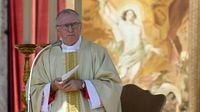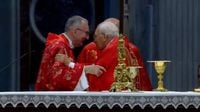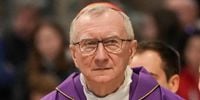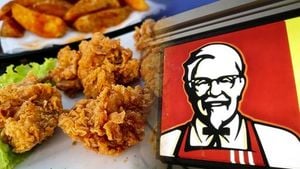The conclave to elect the new Pope has begun in the Vatican, marking a historic moment as 133 cardinal electors from 71 countries gather to make this significant decision. This conclave is noted for its diversity, with the largest representation of nations in history, reflecting the universal nature of the Catholic Church.
As the cardinals engage in hours of secret voting in the iconic Sistine Chapel, the world awaits the signal of white smoke, which will indicate the election of a new pontiff. This moment will be followed by the traditional announcement of 'Habemus Papam,' revealing the name of the new leader of the Catholic Church.
Prior to the start of the conclave, all Vatican personnel, both lay and ecclesiastical, took an oath of confidentiality, ensuring that the election process remains shrouded in secrecy. In the lead-up to this pivotal event, the cardinals held general congregations, discussing the future direction of the Church.
Among the leading candidates, known as 'papabili,' is Pietro Parolin, the current Secretary of State of the Vatican and a prominent figure in the Church's diplomatic efforts. At 70 years old, Parolin has been recognized for his moderate and pragmatic approach, making him a favored choice among many electors. His extensive diplomatic experience includes significant roles in negotiations between the Vatican and various nations, including the historic rapprochement with China.
Born in Schiavon, Italy, in 1955, Parolin was ordained a priest in 1980 after entering the seminary at the age of 14. His diplomatic career began in 1986, and he has served in key positions in countries such as Nigeria and Mexico. In 2013, he was appointed Secretary of State by Pope Francis, solidifying his influence within the Vatican.
Another prominent candidate is Luis Antonio Tagle, the archbishop of Manila, known for his advocacy for social justice and inclusion. Often referred to as the 'Asian Francis,' Tagle represents a continuation of the reformist legacy of Pope Francis. At 67 years old, he is recognized for his ability to connect with diverse communities and promote dialogue within the Church.
Matteo Maria Zuppi, the archbishop of Bologna and president of the Italian Bishops' Conference, is also in contention. At 69, Zuppi is known for his commitment to social issues and conflict mediation, which aligns with the Church's mission to address contemporary challenges.
Jean-Marc Aveline from France, who is seen as a progressive voice within the Church, is another candidate attracting attention. His focus on dialogue and outreach to marginalized communities resonates with the Church's goals of inclusivity.
The conclave is not without its controversies. An unexpected moment occurred during the 'Pro eligendo pontifice' mass when Cardinal Giovanni Battista Re, the dean of the College of Cardinals, wished Parolin "Suerte por partida doble" (double good luck), leading to speculation about the implications of such a gesture.
Furthermore, the absence of Kenyan Cardinal John Njue has sparked confusion. Njue claimed he was not invited, while the Archdiocese of Nairobi stated he was officially invited but could not attend due to health reasons. This discrepancy raises questions about representation in the conclave, as Njue's absence means Kenya will not have a voice in this critical election.
The first day of voting concluded without a white smoke signal, indicating that consensus had not yet been reached among the cardinals. On the morning of the second day, black smoke was emitted from the chimney at 11:58 AM, further highlighting the challenges of reaching an agreement.
As the cardinals continue their deliberations, the stakes are high. The new Pope will face numerous challenges, including internal reforms, interfaith dialogue, and addressing the ongoing crisis of abuse within the Church. The elected pontiff will need to navigate these issues while maintaining the Church's core values.
The conclave operates under strict measures of isolation and secrecy, with cardinals prohibited from using mobile phones or accessing the outside world. This tradition, which dates back to the 13th century, emphasizes the solemnity of the election process.
With the world watching closely, the anticipation builds for the moment when the white smoke will rise from the chimney, signaling the election of a new Pope. This individual will not only lead the Catholic Church but will also have a profound impact on the global stage, addressing pressing issues such as poverty, inequality, and the role of the Church in contemporary society.
As the conclave unfolds, the names of potential successors resonate within the Vatican halls. Pietro Parolin stands out as a candidate who embodies a balance between tradition and modernity, making him a compelling choice for the future of the Catholic Church. The outcome of this conclave will undoubtedly shape the Church's direction for years to come.
In the end, the anticipation for the announcement of the new Pope encapsulates the hopes and aspirations of millions of Catholics worldwide, all eager to see who will take on the mantle of leadership in these challenging times.






